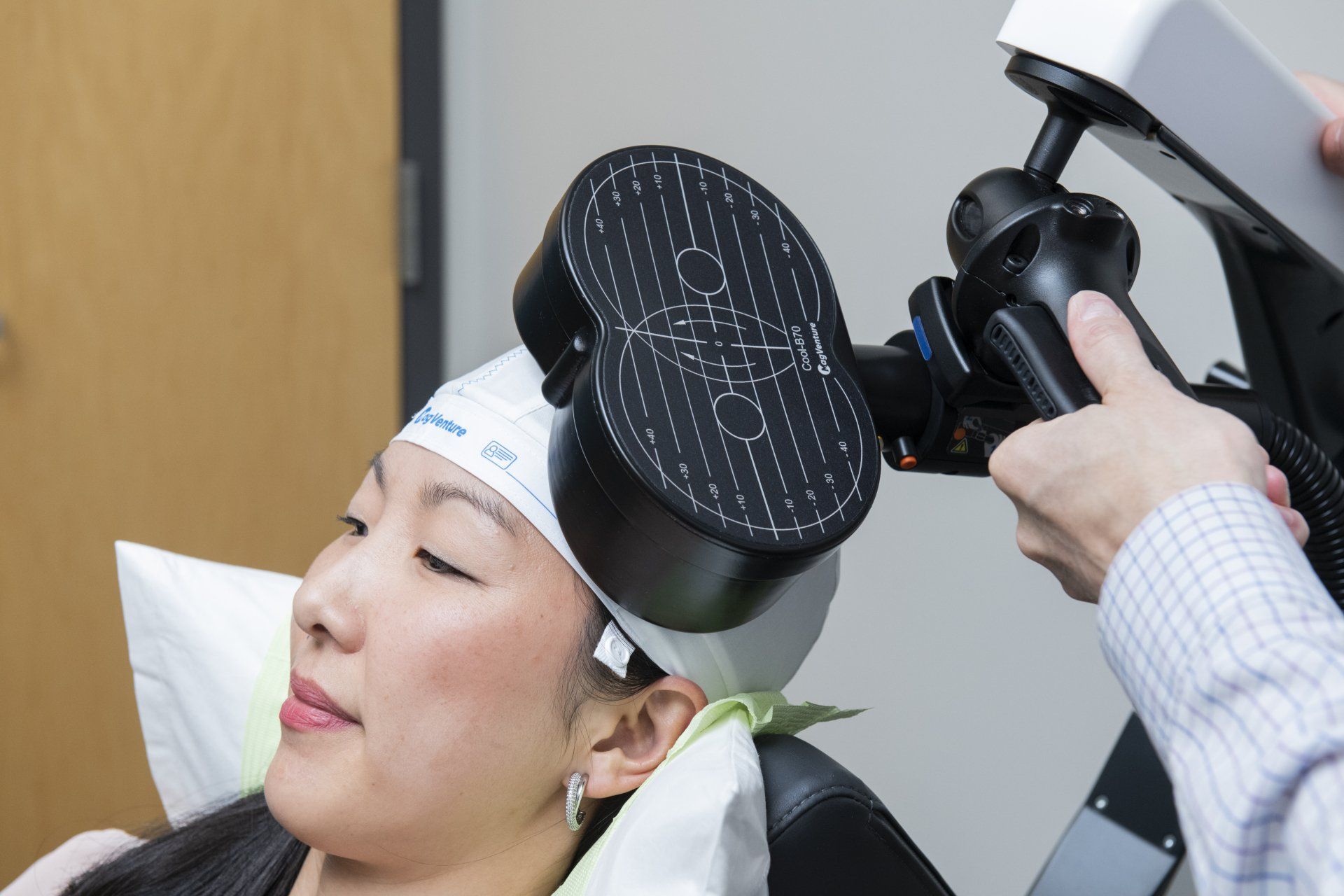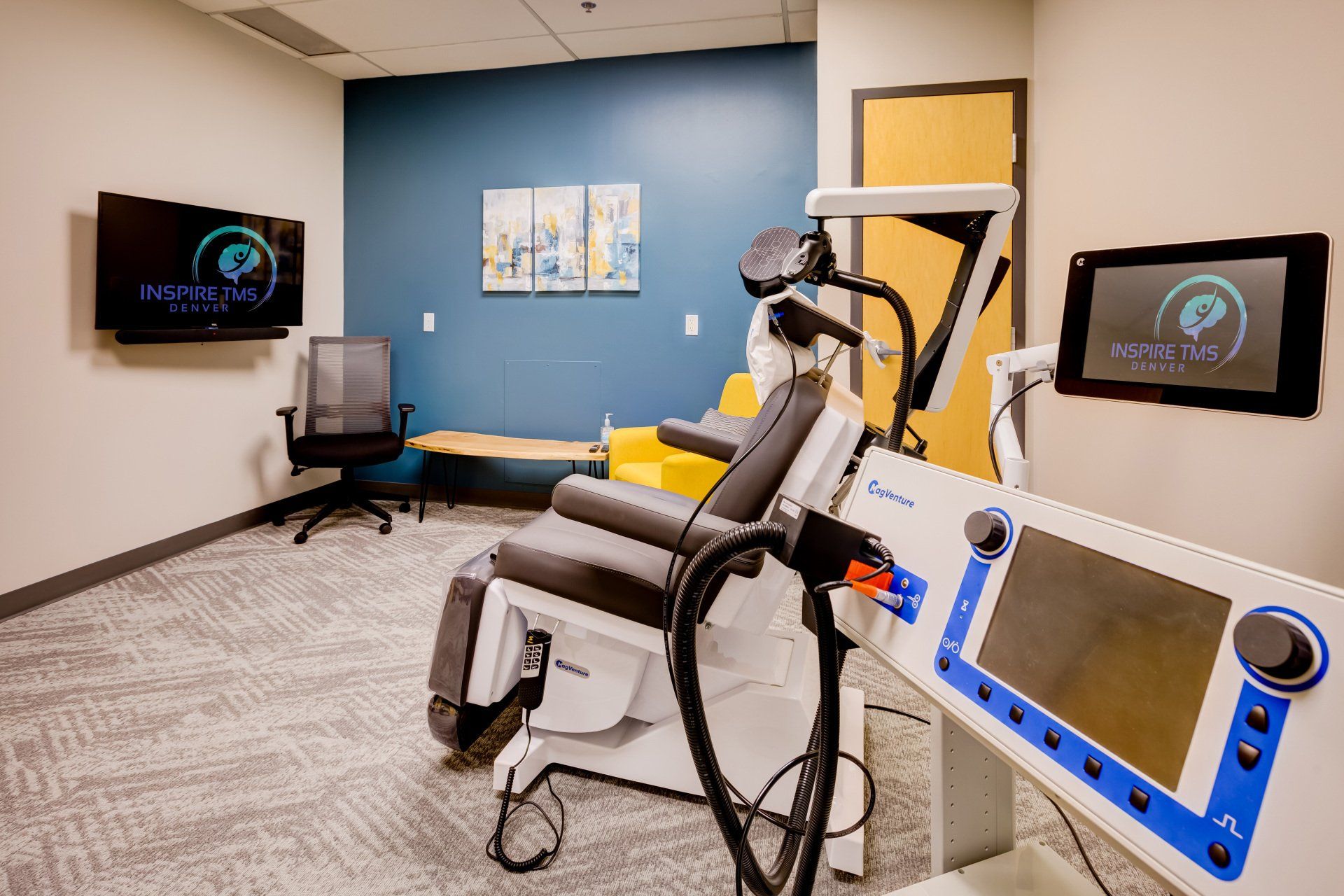If you have concerns or identify with many of the symptoms of obsessive-compulsive disorder, it is important to book an appointment with your primary care doctor or a mental health provider. In the meantime, this test is not a diagnostic tool, but a high score may indicate a disposition for OCD. As this article demonstrates, OCD is a common mental health disorder. There are treatments available to successfully manage symptoms of OCD, including
TMS therapy. Take the quiz below to see if OCD might be present for you.
Do you experience incessant and invasive thoughts that become overwhelming and trigger activities or ‘rituals’ that must be completed to provide relief or prevent some kind of perceived harm?
Do those activities include avoiding places and/or people, or require repetitive behaviors such as mental counting or rechecking to be completed within a specific order or time?
Does this cycle have a significant impact on your everyday life, work, and relationships? Do you feel isolated and frightened about these feelings?
The crucial message is that you are not alone.
OCD was once ranked by the World Health Organization in the top 10 of the most disabling illnesses by lost income and decreased quality of life. - OCD-UK
The World Health Organization lists anxiety disorders, including OCD, as the sixth largest contributor to non-fatal health loss globally. - OCD-UK
The National Institute of Mental Health (NIMH) asserts that approximately 1 in 40 adults suffer from OCD over the average lifetime and that it affects almost 75% more females than males
What Is Obsessive Compulsive Disorder?
OCD is an anxiety disorder that manifests in continual oppressive thoughts and fears which, in turn, require the sufferer to commit to repetitive rituals and compulsive actions to negotiate that fear becoming real. This becomes an obsessive cycle that takes over behaviors and thought processes, erodes well-being, and impairs ability to maintain employment and relationships. This, understandably, typically results in depression and further deterioration in functioning.
The good news is that conventional treatments can be effective in managing the condition, whilst even newer, innovative therapies such as
TMS (Transcranial Magnetic Stimulation) can provide significant results when traditional treatments fail. (In the event of any medical emergency including suicidal ideation call 911 immediately).
Symptoms of Obsessive-Compulsive Disorder
OCD is characterized by ‘obsessions’ and the subsequent ‘compulsions,’ These behaviors are often mentally self-negotiated to prevent perceived harm. Intrusive and distressing thoughts can appear without warning, such as visualizing violence or death happening to loved ones despite this not occurring.
We have almost all felt the fleeting and intermittent worry of forgetting to lock our front door at night and getting up to check that the door is locked to be reassured. OCD sufferers' anxieties are irrationally intense, however, and require far more action to acquire reassurance and security. This could mean repeated handwashing, frequent rechecking of locked doors, rigid organization of objects, or even using specific travel routes under uniform conditions. These rituals can take precedence over employment duties, day-to-day living, and relationships.
Symptoms can be exhausting and keep the body in a continual state of fear response. Listed below are 5 common types of OCD behaviors:
Checking
- Repeatedly checking locks, keys, emails, cooking appliances, children’s safety, etc.; in some cases, several times every hour.
Contamination / Mental Contamination
- Fear of dirt and infection leads to compulsive hand washing and avoidance.
Symmetry and ordering
- Aggressive order and symmetry are required to prevent some kind of harm.
Ruminations / Intrusive Thoughts
- OCD rumination presents with constant and unproductive thinking on one subject.
- OCD obsessional thoughts are distressing and often repulsive in nature, e.g. flash thoughts of accidentally causing harm to someone or of harm occurring to loved ones.
Hoarding
- Irrational emotional attachment to belongings leads to an inability to dispose of items that are no longer used or useful.
Diagnosis of Obsessive-Compulsive Disorder
If you have concerns that you are identifying with symptoms of OCD, start by discussing your worries with your general practitioner who may likely refer you to a Mental Health Specialist. A Mental Health Specialist will make a diagnosis based on a thorough review of your medical history and your symptoms. The American Psychiatric Association defines an OCD diagnosis as;
‘A diagnosis of OCD requires the presence of obsessional thoughts and/or compulsions that are time-consuming (more than one hour a day), cause significant distress, and impair work or social functioning. OCD affects 2-3% of people in the United States, and among adults, slightly more women than men are affected. OCD often begins in childhood, adolescence, or early adulthood. Some people may have some symptoms of OCD but not meet full criteria for this disorder.’
A blood test and physical examination may also be performed to rule out any other potential causes or conditions. It may be advisable to bring a close friend or family member to a consultation for both support and to provide another’s perception of your symptoms.
Check out our article on TMS for OCD to learn more about TMS treatment for OCD. Inspire TMS Denver has experience treating this condition and an FDA approved coil specifically designed to treat OCD.
Share this Post







